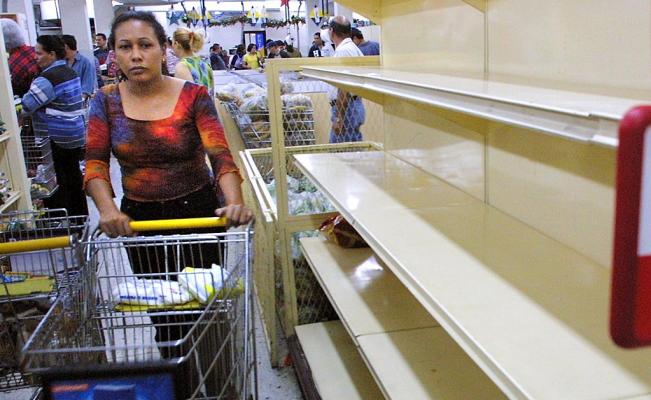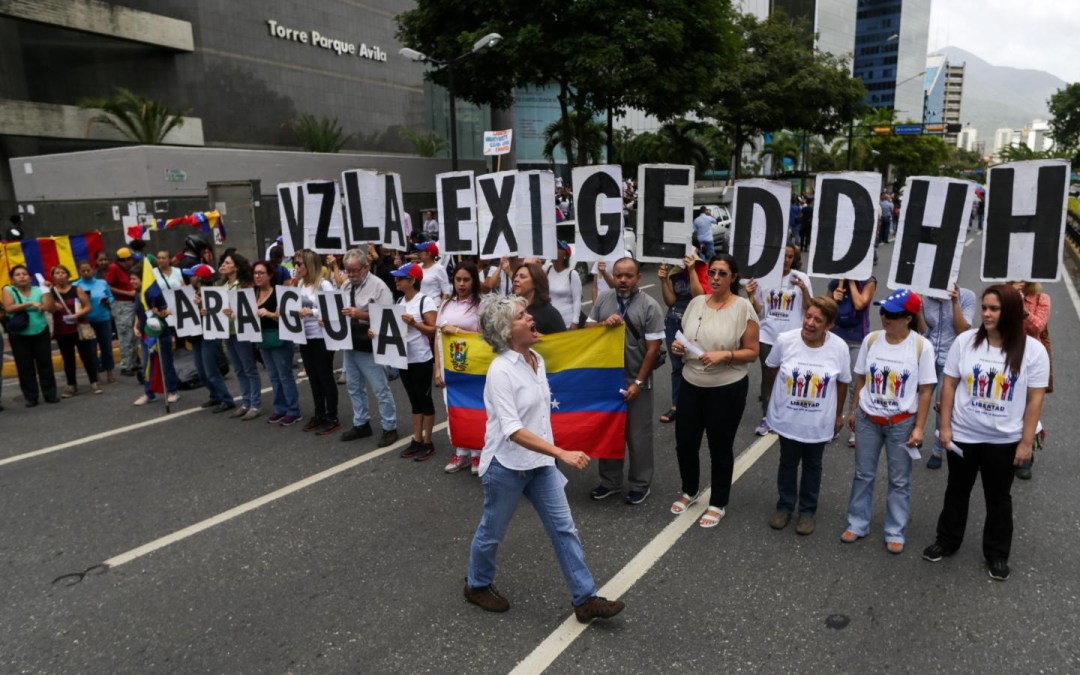Economist and researcher Víctor Álvarez presented his latest book under the title Sanciones Económicas: efectos colaterales en empresas privadas y organizaciones humanitarias (Economic Sanctions: Collateral Effects on Private Companies and Humanitarian Organizations), which discusses the impact and consequences of international sanctions on Venezuelan companies and humanitarian aid organizations
In a recent interview, Álvarez explained that in the middle of the crossfire between the Government and the opposition regarding the sanctions, there is a whole country that bears the unwanted collateral damage.
Although the Venezuelan crisis has been recognized and documented by international organizations and becomes evident with the migration of more than 7 million people, Alvarez’s work seeks to provide an answer to the big question of whether sanctions are the cause and origin of the economic and social crisis or just the worsening a problem that had already been building up in the past.
Alvarez mentioned that the national debate around the issue of sanctions prompted him to conduct an inquiry that included consultations with important business leaders in the country and representatives of humanitarian organizations.
“The official narrative of the Government attributes the sanctions to the origin of all the problems affecting Venezuelan families, businesses and institutions… The narrative of the opposition considers sanctions as an event that took place after the onset of the crisis, which they attribute to wrong government policies”.
The research found that sanctions certainly have an impact on the activities of companies and organizations. “Many companies and humanitarian organizations had their accounts with international banks unilaterally closed. That meant they couldn’t receive transfers from their donors or make payments to their suppliers”, Alvarez said.
“They were subjected to very rigorous requirements to support the origin of the funds, many began to lose partners who did not want to do business with Venezuela. This has made the economic recovery of the country and the work of humanitarian organizations more difficult,” Álvarez asserted.
The reason for these side effects is the restriction imposed by the United States on companies that had relations with the Government of Venezuela.
The sanctions apply to companies from any country in the world that, having operations in US territory, dare to do business with companies of the Venezuelan State. Many banks preferred not to risk a penalty and decided -unilaterally and arbitrarily- to cut off their relations with Venezuela, the study reveals.
About the book
The debate on a real sociopolitical and socioeconomic change in Venezuela requires an objective analysis of the current economic conditions hindering the development and progress of Venezuelans. The polarization of recent years has veiled the truth about the Venezuelan institutional reality, in such a way that different groups in power use it to build their own vision. This is the case of sanctions. For the opposition, they are a necessary measure to bring about the fall of the government of Nicolás Maduro; for the Government, they are the cause of the present economic and social woes.

The book discusses the collateral effects of economic sanctions on private companies and humanitarian organizations; effects that reach the entire Venezuelan society as they impact people’s health, education, nutrition, or life projects. The sanctions are criminal and have failed to contribute to the end of ousting Maduro, the reason for their creation.
The text is also a memory of the transformations that are currently taking place in the Venezuelan economy, derived from the application of sanctions. While some of the sanctions have an individual effect -such as those imposed on government officials-, some others have a significant social impact and affect the entire nation, which now faces higher levels of poverty, inequality and social exclusion. The sanctions have worsened the humanitarian situation and the destruction of the productive system.
The author insists that sanctions can be a valid instrument to trigger political negotiations that bear in mind the interest and concerns of the most disadvantaged people. This position is shared by many humanitarian organizations that have called for agreements between the main political actors in favor of the people and with the mediation and oversight of domestic and international partners. This is a need that cannot continue to be postponed. The deaths of innocents trapped in the middle of the conflict among the different factors of political power is a cry to heaven. It is time to stop the suffering. It is time for a conversion of hearts. It is time to open spaces for peaceful social coexistence, the recovery of the rule of law, the economy and justice, and the construction of a better future for all.
Translated by José Rafael Medina




